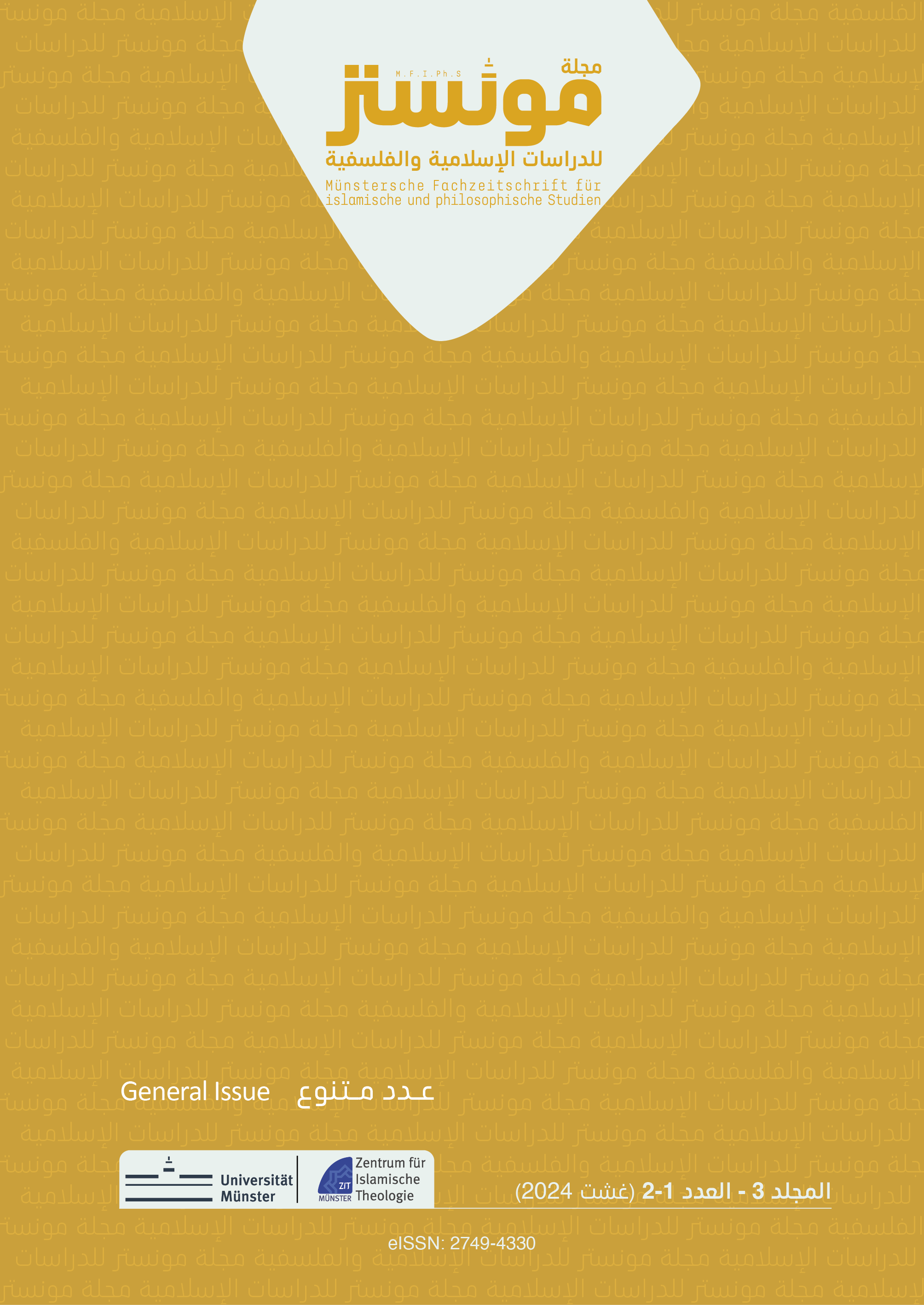Vol. 3 No. 1-2 (2024): General Issue

We are pleased to present to our readers this general issue of the Münster Journal for Islamic and Philosophical Studies. This issue brings together a collection of outstanding research articles that explore various important topics in the fields of Islamic and Philosophical Studies. This compilation reflects our commitment to provide rigorous research that promotes a deep understanding of philosophical and religious issues and aims to open new horizons in these fields.
The issue begins with an article by Najib George Awad, which examines the development of philosophy in the Arab Islamic world through an analytical reading of the concept of 'Islamic philosophy' in the light of the history of philosophical thought in the early Islamic era. The author revisits the early moments when Muslim Arabs in the Abbasid era developed a philosophical discourse influenced by the Greek philosophical heritage of Plato and Aristotle. The article focuses on the philosophical texts of Ya'qub Ibn Ishaq al-Kindi and Abu Nasr Muhammad al-Farabi, drawing conclusions on whether these early texts aimed at Islamizing philosophy or sciences.
Romdhane ben Romdhane's article examines the controversial concept of "Ṣirfa" and its relation to Qur'anic inimitability. The article discusses how this concept developed within the Muʿtazilite school from the 9th to the 11th century, examining its theological and linguistic dimensions and how it was adapted to fit the broader discourse on Quranic inimitability.
Mohamed Oussama Benatallah presents a study of Raffaele Pettazzoni's contributions to the field of religious studies, focusing on his efforts to reconcile phenomenology and history. The article highlights Pettazzoni's critique of classical theories on the origin of religion and his advocacy of a phenomenological approach that seeks to uncover the intrinsic meaning of religious phenomena while integrating the historical context.
Rita Faraj's study sheds light on the work of Elisabeth Schüssler Fiorenza and her methodology in critical feminist liberation theology. The study outlines Fiorenza's four hermeneutical pillars: hermeneutics of suspicion, remembrance, imagination and proclamation, and presents her main conclusions regarding the "Jesus Movement" and the "Ecclesia of wo/men".
The article by I. Howard Marshall, translated by Bouchra Nouassi, provides a comprehensive overview of historical criticism of the New Testament. Marshall explains how the historical sciences are used to understand ancient religious texts, addressing the challenges historians face and the importance of contextualising religious narratives historically.
The articles in this issue conclude with Mohamed Oussama Benatallah's translation of Raffaele Pettazzoni's article on the relationship between history and phenomenology in the study of religion. Pettazzoni argues for a phenomenological approach that maintains the transcendental nature of religion while emphasising the historical context of religious phenomena, advocating a balanced integration of both methodologies.
In the Book Reviews section, Mohammed Eriouiche presents his review of Ḥanafī Fiqh in Ifrīqiya in the 3rd/9th Century by Nejmeddine Hentati.
We hope that these articles will contribute to the enrichment of academic discourse and mutual understanding among researchers and readers in the fields of philosophy and Islamic studies.



